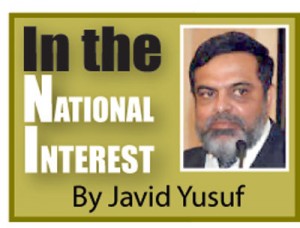News
Sri Lankans united in adversity but divided thereafter
View(s):Sri Lanka is beset with a multitude of problems ranging from debt servicing to inadequate economic growth. The debilitating armed conflict drained not only the country’s economic resources but even its spiritual capital. Yet, despite such challenges facing the country, there are forces at work which have no reservations about creating conflict which can cause further setbacks to the nation-building effort.
Any multi-religious or multi-cultural nation cannot escape the inevitability of conflict given the complexity of human relations. Yet the genius of a particular society is reflected by how well it manages such conflicts.
When competing claims on resources or differing approaches to social problems give rise to conflicts, an enlightened society will be able to manage and resolve such problems without much harm being caused to the people. Even if such conflicts are caused by deliberate campaigns to spew hate on one section of society or the other, a mature community will be able to contain and resolve such conflicts within reasonable bounds.
Sri Lanka has for long been such a mature society and a model of co-existence for centuries. After the Sinhala-Muslim riots of 1915 it was after seven decades that the country had to face another clash in July 1983 during the anti-Tamil pogrom. One politician predicted that the events of 1915 would be repeated in 2015 but fortunately his predictions did not come to pass.
Despite tensions that have flared up on and off, the different communities have lived with mutual respect, and worked alongside each other for common objectives.
When colonial intrusions took place, Sinhalese and Muslim soldiers joined hands to defend the country against the Portuguese. When the Portuguese persecuted the Muslims and drove them inland, the Kandyan Kings protected the latter and provided them with lands for their livelihood as well as for their places of religious worship.
Similarly when Dutugemunu defeated Elara, the Sinhalese King afforded all due respect to his foe and did not hold back merely because the latter was a Tamil King.
During the July 1983 riots, which was orchestrated by a small group of Sinhalese, the majority of Sinhalese and Muslims provided protection and relief to their fellow Tamil citizens, sometimes at great risk to themselves.
Even at the height of the armed conflict, when the tsunami struck the shores of Sri Lanka, army soldiers reached out to LTTE fighters and vice versa. This was a classic situation of mutual help and inter-dependence being the only way for the protagonists in the war to escape the force of the tsunami.
At Nandikadal in May 2009, it was heartwarming to see soldiers escorting, and sometimes carrying, Tamil civilians to safety despite the grueling war they had been fighting. Just last week the country witnessed the armed forces providing humanitarian relief to flood victims in the Northern Province.
There may be many more similar stories which reflect the positive aspects of inter-communal relations which dot our country’s history. These are indicative of the common humanity that binds the citizenry, and comes to the fore in times of adversity. Yet, soon after the difficulty recedes, evil forces that seek to drive a wedge between communities become active once again.
The tragedy is that the country comes together in adversity but drifts apart in better times. It is time that men and women of goodwill work hard both within and without their communities in order to neutralise the disruptive forces of communalism in order that people can live in peace and harmony.
Following the disastrous Constitutional cum political impasse the country faced during the past two months, it is heartbreaking to see even politicians who are usually not of a communal mindset following the bad example of their more communal-minded colleagues, merely to further their political agenda.
In contrast, however, it is a relief that the leadership of the country is holding fast to the National Reconciliation agenda, despite the political developments of the past two months.
President Maitripala Sirisena remains committed to the Government’s pledge to return private land occupied by the armed forces in the North and East to their owners, as well as addressing the issue of those being detained without trial.
Prime Minister Ranil Wickremesinghe has taken over the Portfolio of Northern Development signaling that the task of developing former conflict areas was a national priority and not a matter only for Tamil politicians. Despite his other responsibilities it would be desirable if the PM took over the portfolio of Eastern Development as well.
Speaker Karu Jayasuriya, who played a commendable role in ensuring the protection of democracy and the Constitution during the past two months of instability, too flagged the issue of the rising tide of communalism last week.
Speaking to a delegation of the Congress of Religions, Mr Jayasuriya highlighted the dangers of the resurgence of communalism and racism, and called upon religious leaders not to permit politicians to use places of religious worship to spread communal hate and create disharmony in the country.
During the past two years Mr Jayasuriya himself has been spearheading an initiative in support of National Reconciliation through discussions with religious leaders in various parts of the country.
In addition, the Speaker called upon religious leaders to actively campaign for the abolition of the Executive Presidency which had a detrimental impact on democracy and the country’s progress.
The efforts at National Reconciliation have to be pursued with renewed vigour, particularly in light of the relentless efforts of some sections of society to undermine the process. Disgruntled or disadvantaged sections of society will only hold back national progress.
One part of the country cannot progress at the expense of the other. Whether Sinhalese, Tamil or Muslim, rich or poor, or any similar grouping, if they are insecure or dissatisfied, the country cannot move forward. The grievances of all sections of the community, whether real or perceived, need to be addressed. Only such a collective effort can take the country forward.
(javidyusuf@gmail.com)

